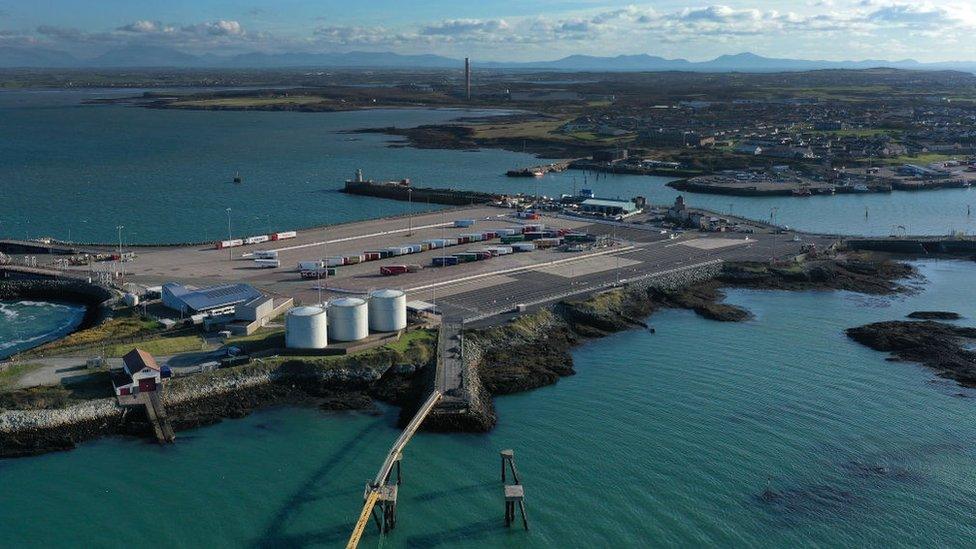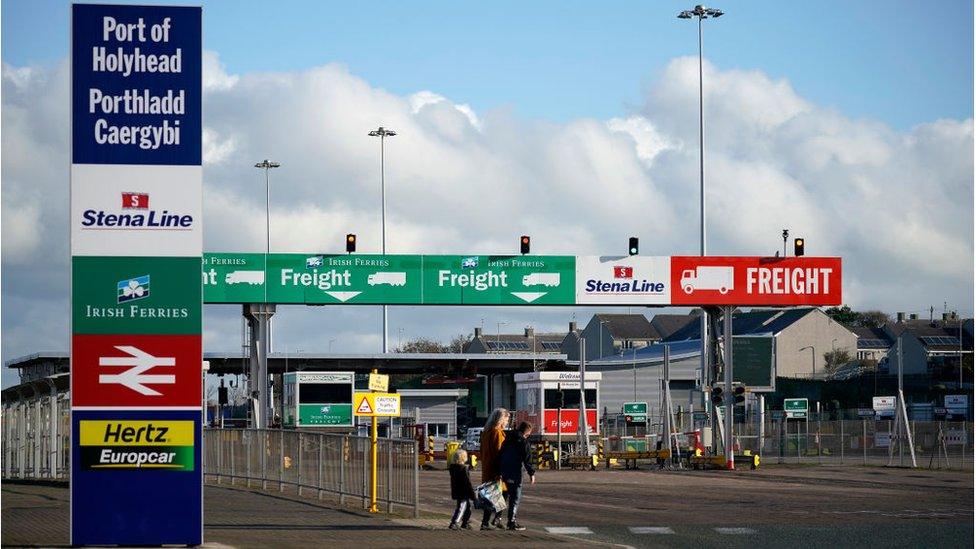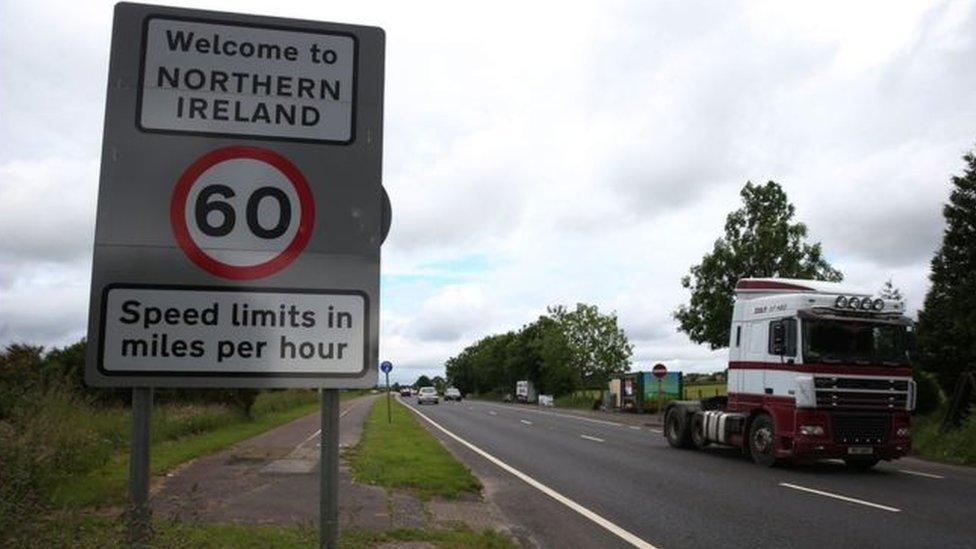Ports plan for Brexit Irish Sea checks
- Published
- comments
Stena boss Ian Hampton says there will be border checks for ships crossing the Irish Sea.
The biggest operator of ferries in the Irish Sea has confirmed that there will be checks, inspections and some new infrastructure for trade, and it wants to know what the government will pay for.
The plans will affect both trade with the Republic of Ireland and within the UK between Great Britain and Northern Ireland, as a result of Brexit.
Stena Line said that its working assumption was that new checks would be carried out in British ports.
Stena boss Ian Hampton told the BBC that though a managed exit was "positive" and the extent of new procedures could be lessened with a strong deal, "there's a border, and the border requires checks".
The border will be down the Irish sea, he said. And while his company won't be doing them, it will have to provide room for officials to do the checks, he said.
As well as operating a fleet of ferries connecting Great Britain to the island of Ireland, Stena also owns three ports on the route, and wants to know the physical changes required on what has, until now, been seamless trade.
The industry's assumption is that the checks will be done in Great Britain on exit rather than in Ireland or Northern Ireland.

Prime Minister Boris Johnson said in December there would not be any checks for goods travelling from Northern Ireland to Great Britain under his Brexit deal.
He told Sky News at the time that a leaked Treasury analysis document was "wrong" to suggest this would be the case.
Mr Hampton said: "For us, it is a big concern. How will those ports need to change to be able to cope with the checks that maybe need to be brought into place?"
"We are still in this territory of not getting clarity from the government just yet as to how they actually see trade agreements being, because if we get good trade agreements, we won't need to have certain checks."
Funding question
In a possible scenario of no trade deal, the ports would require space to house officials from government to protect the border. "So we would have to start to introduce that infrastructure and someone needs to fund it. We require also the government to come to the table and play their part in the funding."
The Home Office did not immediately respond to a request from the BBC about how the checks will be funded.

At the Scottish port of Cairnryan, which has a ferry linking with Larne in Northern Ireland, some consideration is already taking place as to whether freight checks could be carried out in Stranraer or at a nearby old airstrip.
At Stena-owned Holyhead, the UK's second largest port, the facilities for checking animal products have long since been sold off and replaced with a supermarket and a McDonald's.
Some local politicians have floated the idea of having to reclaim land from the Irish Sea in order to create the space for the post-Brexit checks required there on the key route with Dublin.
Mr Hampton, who is also the co-chair of the Chamber of Shipping industry body, urged the government to think again on its refusal to contemplate any extension to the 11-month implementation phase.
"If we do not progress, if we do not use this time wisely, then of course, we will encourage a rethink," he said.
"Let's not have a date where we fall off the cliff slightly later in the year."
- Published8 December 2019

- Published10 December 2019
